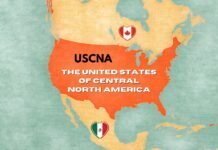by Johnny Punish
In the new book by Ari Shavit called “My Promised Land: The Triumph and Tragedy of Israel” the flawed foundations that Zionists have built their vision of a Jewish state on show massive cracks and support the real truth that Israel has no where forward to go under its current paradigm.
Frankly, it has no real vision for our 21st century and its 20th-century ideas are turning into dust under the weight of reality.
First, to be clear, not since Thomas L. Friedman’s book From Beirut to Jerusalem has a book captured the essence and the beating heart of the Middle East as keenly and dynamically as My Promised Land. Ari makes a compelling heartfelt presentation.
However, facing unprecedented internal and external pressures, Israel today is at a moment of existential crisis.
Ari Shavit draws on interviews, historical documents, private diaries, and letters, as well as his own family’s story, illuminating the pivotal moments of the Zionist century to tell a riveting narrative that is larger than the sum of its parts: both personal and national, both deeply human and of profound historical dimension.

In this book we meet Shavit’s great-grandfather, a British Zionist who in 1897 visited the Holy Land on a Thomas Cook tour and understood that it was the way of the future for his people;
- the idealist young farmer who bought land from his Arab neighbor in the 1920s to grow the Jaffa oranges that would create Palestine’s booming economy;
- the visionary youth group leader who, in the 1940s, transformed Masada from the neglected ruins of an extremist sect into a powerful symbol for Zionism;
- the Palestinian who as a young man in 1948 was driven with his family from his home during the expulsion from Lydda;
- the immigrant orphans of Europe’s Holocaust, who took on menial work and focused on raising their children to become the leaders of the new state;
- the pragmatic engineer who was instrumental in developing Israel’s nuclear program in the 1960s, in the only interview he ever gave;
- the zealous religious Zionists who started the settler movement in the 1970s;
- the dot-com entrepreneurs and young men and women behind Tel-Aviv’s booming club scene; and today’s architects of Israel’s foreign policy with Iran, which, as they claim, the nuclear threat looms large over their state.
As it examines the complexities and contradictions of the Israeli condition, My Promised Land asks difficult but important questions:
- Why did Israel come to be?
- How did it come to be?
- Can Israel survive?
It ends and culminates with an analysis of the issues and threats that Israel believes it is currently facing. My Promised Land uses the defining events of the past to shed new light on the present.
The result is a landmark portrait of a small, lost country living on the edge, whose identity and presence still play a crucial role in today’s global political landscape but face an uncertain future because it lacks the foundations to build something real for everyone!
ABOUT THE MY PROMISED LAND AUTHOR: Ari Shavit is a leading Israeli columnist and writer. Born in Rehovot, Israel, Shavit served as a paratrooper in the IDF and studied philosophy at the Hebrew University in Jerusalem.
In the 1980s he wrote for the progressive weekly Koteret Rashit, in the early 1990s he was chairperson of the Association for Civil Rights in Israel, and in 1995 he joined Haaretz, where he serves on the editorial board.
Shavit is also a leading commentator on Israeli public television. He is married, has a daughter and two sons, and lives in Kfar Shmariahu
In short, Israel cannot survive the 21st century in its current form. No exclusionary state will be able to survive a connected future because such visions are no longer viable. They don’t meet the challenges of our global world.
In his book, we read about the contradictions and are reminded that the fundamental blocks that this 20th-century state was built on actually end up excluding real human beings from the equation thus always putting itself in an Us vs.Them disposition guaranteeing ultimate failure.
The cracking is everywhere as the weight of a connected world crumbles Theodore Herzl’s vision of the world. The only real choice is to replace it with a new 21st-century vision that includes all of us, not just some of us; a Global Promised Land
So while I admire Ari’s progressive presentations, in the end, the Herzl Zionist game plan stinks! Period! It had its time but, in the end, it was a faulty game plan that was always going to end badly because it excludes. Exclusion in our new coming world simply has nowhere to go!
Today, we are sitting here dealing with a faulty vision that no longer works in the 21st century yet we have some leaders still trying to shove it down our throats. And that really lacks in so many ways!
Now, we can choose to continue to push this go-nowhere-vision or we can collectively come up with a 21st-century vision that deals with reality as it is and not using some outdated antiquated fiction as the basis to build a real connected world where we are all human beings; where we pledge allegiance to the earth and all the humans on it as a cornerstone to build a new world and dump the failed visions of the 19th and 20th centuries that simply have no relevance for all of our children.
In short, do we invest the buggy whips of the past or invest in something more evolved, more developed, and more relevant for our new world?
I think it’s time to rethink the whole darn thing and come up with we a new Promised Land. Something called the GLOBAL PROMISED LAND; not just for Jews or Austrian Atheists but for all of us!
FINAL NOTE: For 2014, I will be developing a new peoples think tank and inviting the global best and brightest young minds to join hands with me to promote good energy and humane ideas for a new 21st century that will build an amazing new Middle East and add value our ever-connected global human tribe called the Middle East Union Congress.
I invite your comments











